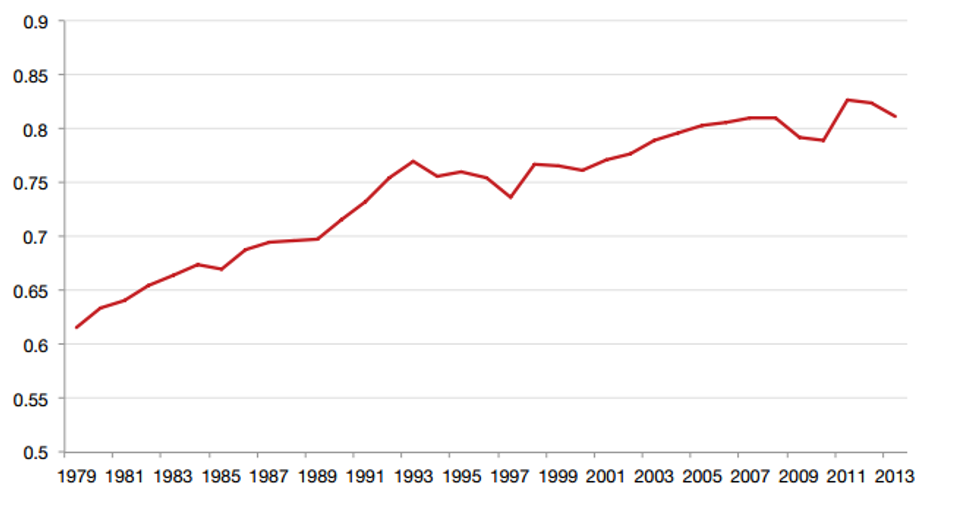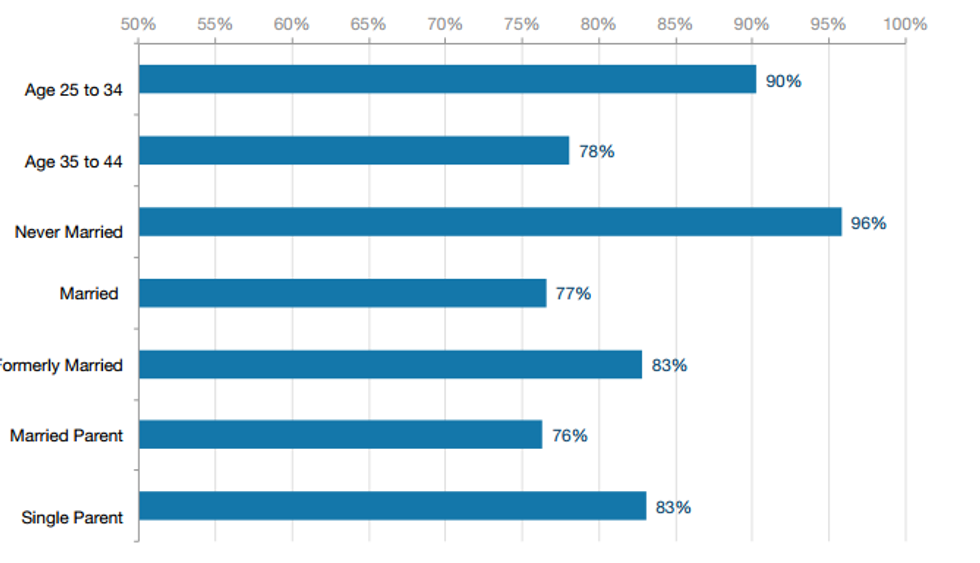News
Matthew Champion
Sep 08, 2014

(Picture: Getty
TL;DR version: They go up for men, down for women.
New fathers can expect to see their pay increase by six per cent, while new mothers are likely to experience a four per cent reduction per child, a US study has suggested.
The data, which only relates to the US, was weighted to take into account hours worked, types of jobs and the salaries of spouses.
Study author Michelle Budig, a sociology professor from the University of Massachusetts, said there was nothing to suggest mothers became less productive employees, or fathers more hard working - it was just that employers expected them to.
"Employers read fathers as more stable and committed to their work; they have a family to provide for, so they're less likely to be flaky," Prof Budig told the New York Times.
"That is the opposite of how parenthood by women is interpreted by employers. The conventional story is they work less and they're more distractible when on the job."
Women's weekly earnings as a proportion of men's
Women's weekly earnings as a percentage of men's
The 'fatherhood bonus and the motherhood penalty' study, published by the Third Way pressure group, was based on the National Longitudinal Survey of Youth from 1979 to 2006.
Analysis by Prof Budig showed that childless unmarried women now earn 96 cents for every dollar a man earns, while married mothers earn 76 cents.
She added that while new fathers often work additional hours, this only accounted for 16 per cent of their individual increase.
In addition, women in the top ten per cent of earners lost no income after having children, while women in the top five per cent actually saw their salaries increase.
Prof Budig suggested this was because high-performing women were already seen as more similar to men.
Source for charts: Third Way
More: The video games brutalised women are used as background decoration in
More: Even burger joints are trying to make women feel insecure these days
Top 100
The Conversation (0)














